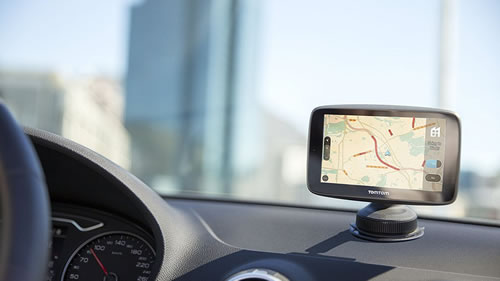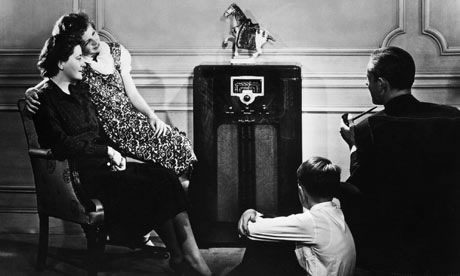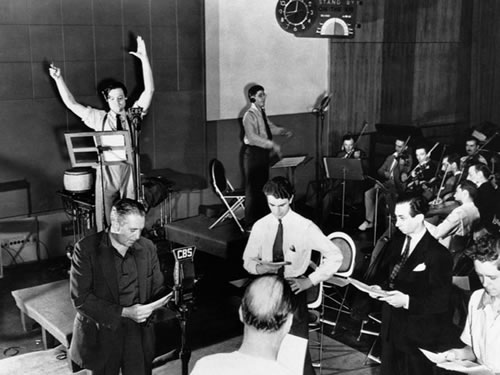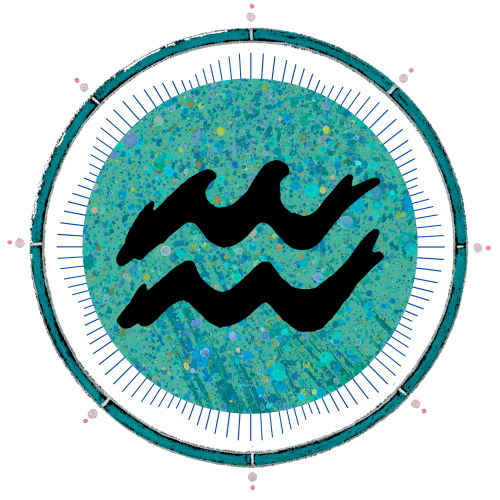Originally published Feb. 21, 2019 | Link to original

“These different kinds of pain share a common thread: our lack of healthy connection to each other, our inability to see the full dignity of each other, and the resulting culture of fear, distrust, tribalism, shaming and strife.”
— David Brooks in The New York Times
Dear Friend and Reader:
We live in the age of the active shooter and the active shooter drill. We live in the age of the president who is under 17 different investigations, who spews lies and declares pretend emergencies. We live in the age of fake news and not-so-fake news. We live in the time of public relations. We live in the time of the privacy policy and the massive data breach. We live in the decade of guilty before being proven innocent, if that ever happens. We occupy the moment where thinking something is true makes it true.
We live in the era of the algorithm. We are alive in the time of the news feed. Where we live, nothing is real, and many are convinced that they are not real. Yet you are, and something must be.
This whole internet-driven world we live in is steadily leading to the destabilization of many people as individuals, and of society. We keep noticing this, and keep wondering what this is about — why things are so weird; why nothing makes sense; why the ground of existence feels like it’s crumbling; why the value of lies seems to go up with the stock index.

The problem is in plain sight. The solution is more challenging to identify.
In one of our last conversations, Eric McLuhan said that we might remedy things if several generations of people could invest themselves deeply into acquiring book knowledge. It is the experience of books (which fosters an interior cultivation process) that leads to the idea of individuality as we know it.
His father, Marshall, earlier said there is no turning back once a new environment has taken hold; there is only adapting in the present, and creating the next environment. But where exactly do we get into this process?
Have you noticed the nonstop barrage of advertising telling us how wonderful artificial intelligence is going to be, how many problems it will solve, and how it’s the only solution to all that ails us? This is where we need to pause and evaluate the propaganda of what amount to religious hucksters — the techno evangelists. We see them in the news all the time. We think they are divining oracles, striding around in front of images of themselves projected 30 feet tall.
Imagine if you had spent the past 25 years in a world of only artificial sweeteners. How good would it feel to bite into a peach?
Your body would respond with the feeling of all you’d been missing. We are at a similar point today with AI, which encompasses all digital technology starting with Pong and the most basic four-function calculator. We are now sharing our physical, mental and emotional spaces with millions of robots. No, they don’t look like Artoo or C3PO, which is even more insidious. They are mostly invisible, or blended into other devices. We don’t notice how strange they are.
Despite the repeated urgings of my father (an uber-Aquarius communications professor who loves the next great thing), I was so averse to using GPS navigation that I never really used it to get somewhere until about three or four years ago, when one night I was lost in LaGuardia Airport. This seemed like an impossible situation, even for GPS, but I gave it a try. And when I did, I got the full experience of the voice from the heavens seeing me, hearing my plea for help, guiding me on and off the ramps, around and around, until I was idling right in front of my friend.

One might be inclined to think, “Oh, how wonderful.” I was thinking, and feeling, that was fucking weird. Weird, like drugs. Weird, like seeing a UFO. And herein lies the core issue: we don’t notice how strange this stuff is. We tend to swallow it whole.
Meanwhile, I am still excited about having a compass display on my rearview mirror. And just as when I was trekking around the East Coast on a bicycle as a teenager, I like actual maps, maps that show context and options. I like asking people for directions, if only to evaluate whether they actually know how to get around their own community.
And yes, when I’m lost at LaGuardia, I might dial in Siri. My current policy is to practice using it just enough to know the range of potential behaviors in different environments, which means, only occasionally. I would rather get lost than rely on a computer to help me find my way around a planet I’ve lived on all my life, unless I really need the help. When that time comes, I want to know how to use the tool consciously.
The Crime Scene, and Chiron the Sleuth
Chiron has now entered Aries; the transition into Taurus begins June 19, 2026, and it enters Taurus for good on April 14, 2027, so Chiron will be a long-term presence in Aries. (Chiron spends the most time in Pisces and Aries — about one-third of its 50-year orbit in two signs.)
To use an old phrase, this is a watershed moment. Apart from a brief spell last year, humanity has never consciously experienced Chiron in Aries. It was discovered in Taurus in 1977, so during the Chiron in Aries phase (the “me generation” era of the late ’60s into the late ’70s), no astrologer had a clue what was happening — at the time.

Where new technology strips away the fiber of humanity, culture and intellect, Aries has often been the crime scene. It’s no ordinary sign; it describes the primary place in our charts where we engage the process of discovering, becoming and fully experiencing ourselves.
Yes, the whole chart counts. Yes, the sign that most distinctly says, “I am” is the essential ingredient. Where you have Aries by house will help describe where you might begin your conscious quest for self. Remember that any sincere commencement (or refocusing) of your quest counts.
I recognize that these might seem like abstract ideas; I will not dwell on them today, only propose that you consider them. The ideas of communicating through the body, and relating to the body as the locus of identity, have been under all-out stress since the development of radio in the late 1920s. Radio was the first mass medium (meaning, many people experiencing the same thing at once; a synonym would be broadcast medium).
After the telephone, radio was the also the first disembodied medium (a voice coming out of a box). It was wonderful — connecting us with The Shadow and FDR’s fireside chats; and we also learned via radio that God wanted us to bomb Hiroshima (and that it was a military base, not a civilian city). We learned that space aliens had invaded New Jersey, leading to mass panic, a lengthy media feeding frenzy, and the revelation that many people will believe nearly anything — if it’s broadcast.
This all centered around the arrival of Eris in Aries in the late 1920s (it’s still there), and we are still living with the effects of the the Uranus-Eris conjunction of that era. At the time, the seeds of both television and the digital revolution were also being sown; television was in the early testing phases, and the first crude transistor (a switch that is the core concept of a computer) was patented. If you want to know more, here’s my article on the subject.

We thought this was all changing society. That was true in one sense.
Really, it was changing us. But we see it as the world about rather than the world within. Did anyone look at a radio and think, “What is this going to do to me?” And when the iPhone came out, I doubt anyone asked that either. I doubt anyone installing a WiFi router ever asked, “What will this device do to me?” I never did; it was just so convenient and modern.
Now, when the technology is ubiquitous and not going away — we are starting to ask, however meekly. Study after study has described serious problems related to smartphones, exposing kids to this technology, and issues related to being bathed in radiation coming from every single direction, 360 x 360.
I have not heard of a brain tumor study the past few years, though I have read about many associated with cell phone use. Mostly I am hearing about behavioral stuff — things like insomnia and melatonin depletion (being soaked in microwaves is like being bathed in invisible light; it’s like trying to sleep with the lights on, which is used in torture).
Today, a friend who is a mother of four wrote to me and asked: “Do you know anything about EMF [electromagnetic frequency] sensitivity? Or do you know someone who does? I think I may have connected the dots on some of my son’s behavioral issues/mood swings, but would like to talk to someone who has some experience…versus me just googling.”
In some of us, Chiron in Aries may pull this set of digital-related issues into sharp focus and high relief. We may suddenly start asking deeper, personal questions about what technology has done to us, and is doing to us, and how we can address the issues. Specific questions may surface first: Chiron conjunct Salacia may focus issues surrounding the impact of digital on the body vis-a-vis sexuality — a serious issue that transcends morality or aesthetics and goes directly to the core of what a person is.
In its role as healing sleuth, Chiron in Aries can help shine a bright light on what has happened to us, ourselves — and what to do about it: how to define a problem in a way that it can be solved; who to go to for help.
Speaking of Digital
A little while ago, I received the following text message by mistake. It’s from someone who often texts me about her personal situation, so I was not surprised. My phone chimed, and I read: “Girl I have some major ass resentment shit going on in my heart with my dad. I know it hurts me and no one else to hold on to shit like that but I don’t know how the hell to 1) let it go 2) be able to continuously let shit go as it comes up. Not just bubbles up from past stuff but things that still happen or are reoccurring.”

In many previous articles, I’ve described the current In
This is typical of digital. First, we live in an inside-out world, where your most intimate thoughts can end up halfway around the world, at the speed of light — by mistake. (Or because someone’s husband sends all the photos of his wife having sex with a lover to her whole address book, schoolmaster, rabbis and all — I got one of those once.)
Setting that aside, though, she describes a real problem that many people are facing now: awakening to their anger and resentment. Well, my friend, at least, is awakening, and she can articulate her situation. She is in really, really good shape compared to many people. She has a clue what she is feeling.
Much of the population is in a digitally-induced stupor, perhaps aware of their emotions, but not the source, or of any potential solution. Often, these feelings are projected as blame, rage, shaming and attack, frequently associated with relationships, sex and gender. These days, there is a lot of anger being directed at men, and I suspect that most of it comes from the kind of scenario that my friend is describing: unresolved issues associated with her father. It does not take long to figure out that it’s not all dad’s fault.
There is plenty of free-floating, disembodied rage to go around as well, looking for a home among the many, many disembodied people in our society.
There are two ways this can go, and this is my cautionary note about Chiron in Aries. We may use it to focus on the world within, or the world around. One of its two basic modes of action will be to push self-awareness, growth, personal transformation, and self-actualization (whatever you may call it). The other is to merge into tribal collectives, who identify themselves by their sense of injury and personal injustice. This is the exact opposite of healing, though it’s often sold as the real thing.
To travel the road of self-actualization is challenging, it can be thorny, it takes serious work, and the deeper rewards are often far in the future. This depends on knowing what you want. Chiron in Aries represents an activation of Mars. Mars is the engine that powers motivation. Bu Mars does not have direction. You need to give it that. Direction means honoring your desire, and sticking to it for a while, to find out what’s there when you arrive. The chances are you know what you want for yourself. Yet there are specific challenges in honoring that, and you can get sidetracked.
It is easy to join a mob and seemingly blow off rage in the name of social justice. That, however, has nothing to do with healing ourselves as individuals (nor as the human family), and our experience of actual human community. Community where you don’t enter a code into your text message window to “help people,” but where you make food for people who are grateful that you’re feeding them.
It’s easy to tap on your Dunkin’ Donuts app and have your coffee paid for and waiting for you when you arrive. This makes it easy to avoid people (which is a signature of digital, and of the purveyors of digital, who are not known for their social graces). I would rather have my 45 seconds of small talk with the cashier, and find out how her day is going here in our corner of the universe.
With Love,




